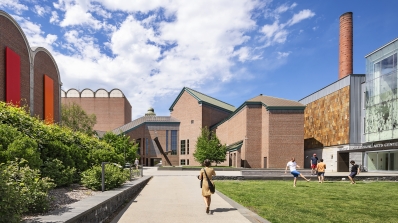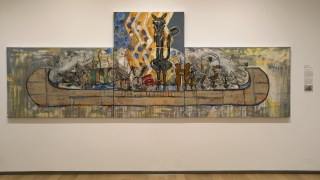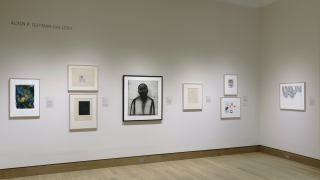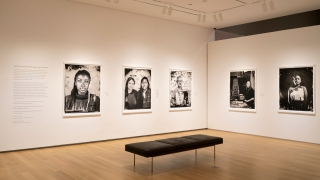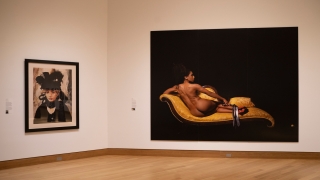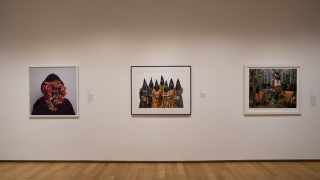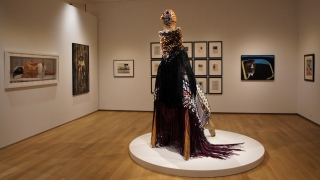Exhibitions Archive
Trade Canoe: Forty Days and Forty Nights
Jaune Quick-to-See SmithTrade Canoe: Forty Days and Forty Nights is part of Jaune Quick-to-See Smith’s well-known Trade Canoe series, which she began in 1992 as a critical response to quincentennial celebrations of Columbus’s arrival to the "New World." In her Trade Canoes and other large-scale paintings, Smith often layers images, paint, text, and objects to convey entangled webs of history, colonization, and extraction that characterize the American experience. Within Forty Days and Forty Nights, Smith draws on imagery from the Christian Bible, Salish creation stories and homelands, art historical references, and pop culture. She creates a cacophonous visual narrative, signaling a possible future of mass flooding as a result of global climate change and rising sea levels. Through this painting and The Rancher, also on view in the exhibition, Smith invites audiences to engage in a complex dialogue and to reconsider the visual landscapes that shape our understandings of Native Americans.
Conceptualized by photographer Will Wilson, the collaborative project Critical Indigenous Photographic Exchange (CIPX) responds to the widely circulated ethnographic photography of Native Americans beginning at the turn of the twentieth century. During a ten-day residency at the museum, Kali Spitzer (Kaska Dena) and Will Wilson (Diné) will take tintype portraits of Dartmouth community members, then exhibit selected images.
Institutional spaces have long privileged Euro-American narratives, which has had powerful, even dangerous consequences in our culture and society. Artists in Reconstitution foster the evolution of previously entrenched narratives as they remind us that we are all responsible agents in the complicated processes of writing current and future histories.
Contemporary Indigenous Australian Photography
Shifting the LensDrawing from the Hood Museum’s collection of Indigenous Australian art, Shifting the Lens features photography by Christian Thompson, Fiona Foley, Bindi Cole, Michael Cook, Darren Siwes, Tony Albert, and Michael Riley that interrogates and conveys the multidimensionality of Indigenous Australian experiences.
